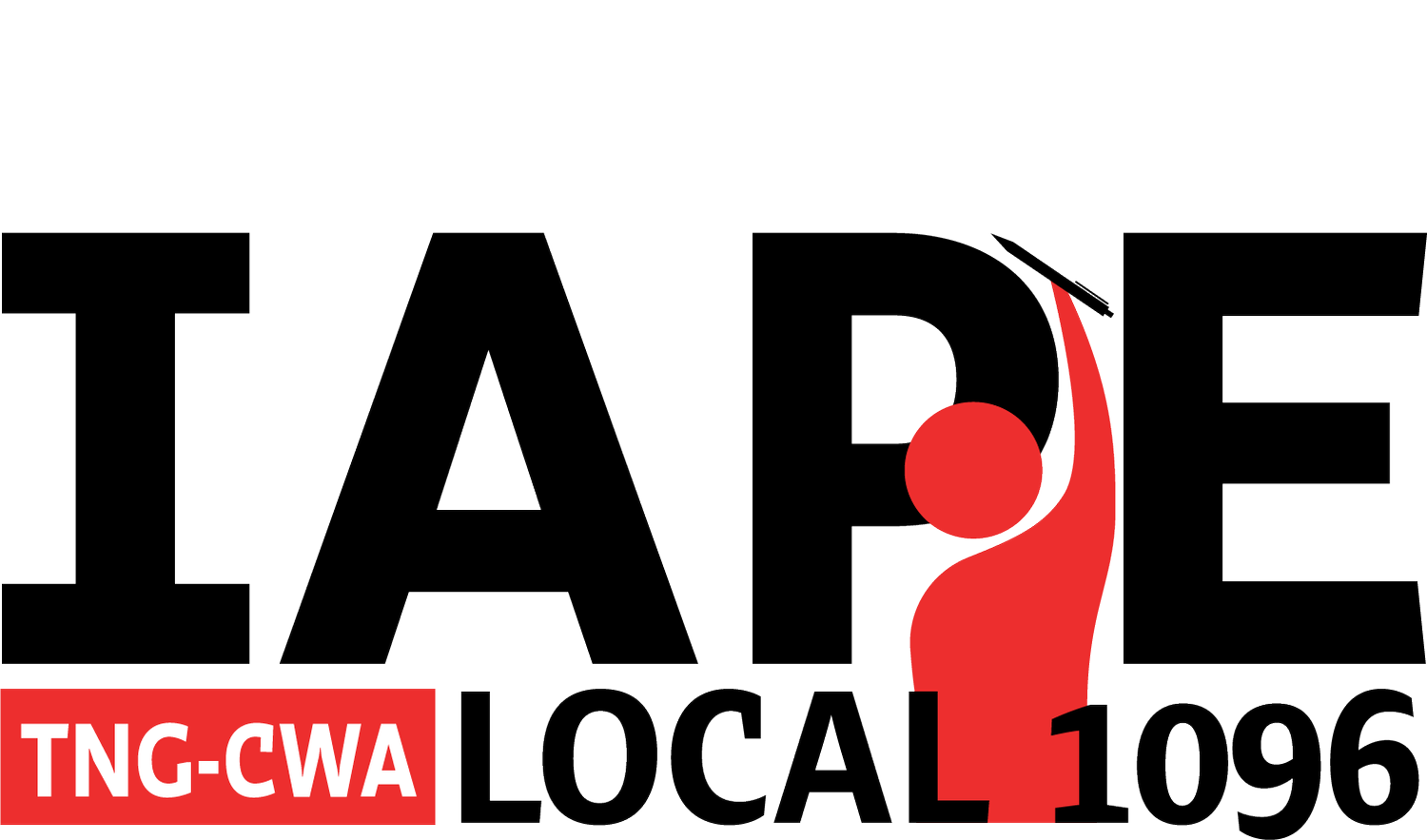August 8, 2016
You've Got Questions, We've Got Answers
CONTRACT NEGOTIATIONS: WHAT'S AT STAKE
IAPE-represented employees in locations around the United States and Canada have asked a variety of questions about what the current contract negotiations will mean for them. Here's a rundown of some of the top issues.
What's at stake?
Our contract expired in June (but was extended automatically for 60 days) and negotiations for a new one have produced little progress so far. The union is willing to work collaboratively with Dow Jones on a variety of issues, but we have not seen reciprocity from the company. Dow Jones is again pushing for workers to pay a higher share of health care costs, while also fighting against wage increases that would deflect some of those costs and reward employees for their hard work.
Over the last 15 years, Dow Jones has faced various challenges, from 9/11 to the 2008-09 financial crisis to the unsuccessful and unfortunate leadership of Lex Fenwick. During each of these events the union has been a good partner during tough times, making significant concessions to the company. Now Dow Jones is on solid financial ground and doing well. It's time for negotiations to be a two-way street. IAPE is seeking a contract that treats employees fairly and allows Dow Jones to continue to thrive.
What's up with wages?
Dow Jones employees on average make less than their union-represented peers at our most relevant competitors, despite outperforming them on a regular basis. Second-year staff reporters at the New York Times make a minimum of $98,000 a year, according to the Guild Reporter. That's a higher salary than is paid now to 57% of IAPE-represented reporters. Meanwhile at Reuters, staffers also have more generous average salaries than at DJ, and wages there can rise higher because many positions considered overtime-exempt at Dow Jones — like reporters — are paid overtime for the extra hours they work. The NYT also pays overtime under some circumstances. (More on that later.)
Salaries at Dow Jones have risen only minimally over the last decade. For the last half-dozen years, the company has never provided more than a 2% annual raise, and in one of those years there was no raise at all. The company has sent signals in negotiations that it once again would like stay at 2%, a position IAPE finds unacceptable.
What exactly are the key issues on health care and why is it a flashpoint in these negotiations?
The company is currently insisting that employees pay a greater share of health care costs. This is not about rising healthcare costs in the marketplace. It's about a Dow Jones goal to cut benefits by making you pay a larger share of the price of health coverage no matter whether costs go up, go down or remain the same.
Since 2012, Dow Jones has aggressively shifted healthcare costs from itself to you, nearly doubling the employee share of healthcare premiums to a planned 25% from 13%. That 25% figure is what the company is insisting upon during these contract talks. DJ says its plan would still keep an employee's share of premiums at the lower end of current industry standards. But the company's argument ignores the traditional bargain in which IAPE members have accepted lower wages in exchange for stronger health benefits at affordable prices.
This years-long shift in health-care costs is a direct cut in take-home wages. And it's not just healthcare premiums. The company has moved to increase co-pays and deductibles as well. Collectively these changes can mean you'll be spending hundreds or thousands of dollars more a year for health care, depending upon your circumstances.
If the company insists on this cost-shifting, it is essential that Dow Jones make it up to employees by agreeing to real wage increases. We believe there also needs to be some limiting principles in the new contract that prevent the company from shifting even more healthcare costs to workers.
The overtime question.
In the never-ending news cycle of the digital age, Dow Jones employees are working harder and longer hours. One way the company could better compensate employees is by actually paying for some of this extra labor, particularly when it comes on the weekend or a scheduled day off.
For reporters and other professionals, it's true some of these long hours come with the job. But it's also true that several competing news organizations do pay their workers for the extra time. Dow Jones management believes this extra work time is already baked in to the salaries you're paid. But as we've demonstrated, those salaries are lower than at peer newsrooms, and many of those workers are getting paid overtime, too.
Many IAPE represented employees, especially those in the newsroom, are currently classified as exempt from overtime payments. We're asking for that to change.
Seniority is up for grabs?
The company is proposing changes to the seniority system that would make it easier for Dow Jones to lay off employees with long records of service. The company already has ample means of disposing of workers it deems inadequate and should not be given any discretion to evade for-cause dismissal processes by using economic layoffs as a pretext. IAPE is concerned the company would use its proposed changes to seniority to ease elimination of higher paid employees who have devoted their careers to Dow Jones. The union strongly opposes such a move.
What you can do.
Dow Jones is unlikely to soften its current hard-line approach unless IAPE members make clear that the current company proposals are unacceptable. So, stay up-to-date on the state of negotiations and register your displeasure when the opportunity is available. Voice support for your side of the bargaining table, whether on our Contract Comments page, Twitter, Facebook or elsewhere. Participate in t-shirt day and other mobilizing efforts IAPE representatives are organizing around the company.
Management needs to hear from you.

